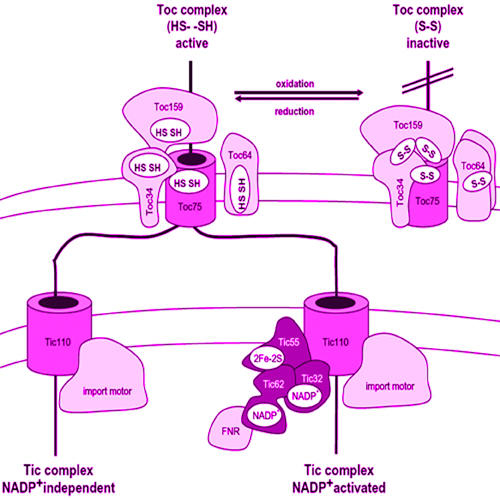Preprotein Import into Chloroplasts via the Toc and Tic Complexes Is Regulated by Redox Signals in Pisum sativum
06-Jul-2009
The import of nuclear-encoded preproteins is necessary to maintain chloroplast function. The recognition and transfer of most precursor proteins across the chloroplast envelopes are facilitated by two membrane-inserted protein complexes, the translocons of the chloroplast outer and inner envelope (Toc and Tic complexes, respectively). Several signals have been invoked to regulate the import of preproteins. In our study, we were interested in redox-based import regulation mediated by two signals: regulation based on thiols and on the metabolic NADP1/NADPH ratio. We sought to identify the proteins participating in the regulation of these transport pathways and to characterize the preprotein subgroups whose import is redox-dependent. Our results provide evidence that the formation and reduction of disulfide bridges in the Toc receptors and Toc translocation channel have a strong influence on import yield of all tested preproteins that depend on the Toc complex for translocation. Furthermore, the metabolic NADP1/NADPH ratio influences not only the composition of the Tic complex, but also the import efficiency of most, but not all, preproteins tested. Thus, several Tic subcomplexes appear to participate in the translocation of different preprotein subgroups, and the redox-active components of these complexes likely play a role in regulating transport.











